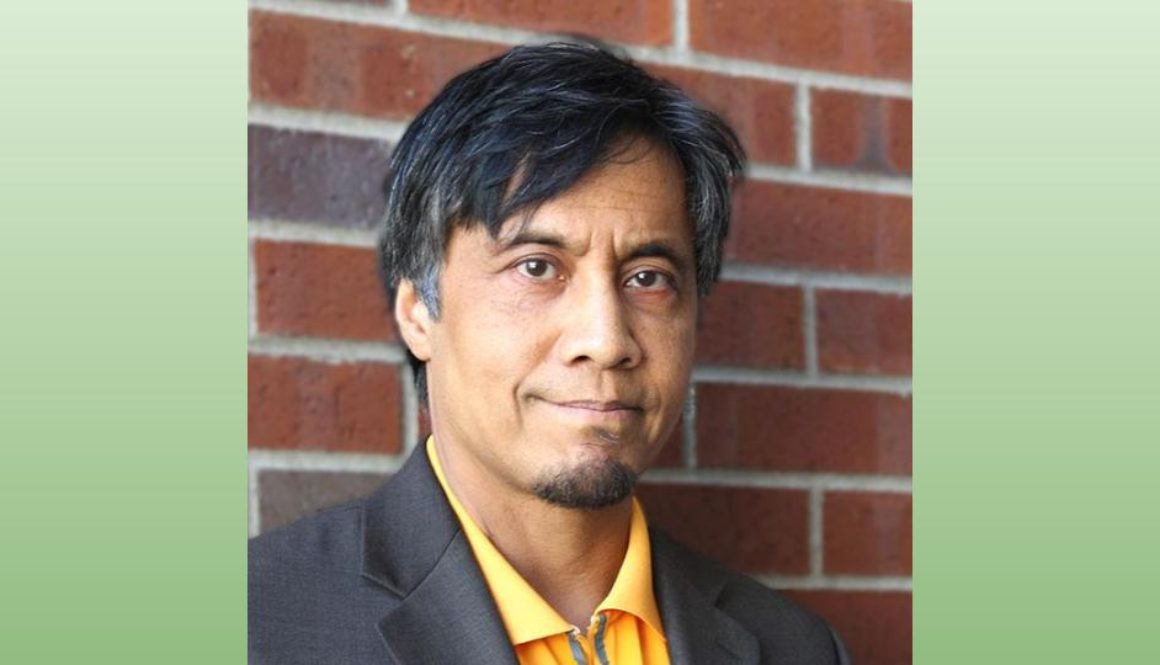Remembering Alex Tizon
In the wake of Alex Tizon’s passing, we asked current and former AAJA members and other journalists who knew him to share some thoughts on the impact he made in their lives and the journalism community. Below are some of those thoughts.
Alex Tizon inspired and taught so many, including me. Years later, his words — the pictures he painted, emotions he evoked, and the way he saw the world — still linger. From his descriptions of someone’s “meaty brown hand,” to that of two women sitting on rocking chairs on their creaky porch, post 9/11, talking about the need to “pray deep,” I felt like I got to know a little about people I’d never met, thanks to Tizon. And most of all, I loved hearing his voice — that guiding, conversational, singular voice — through his stories.
Whenever I would feel blocked, or not quite sure about how to approach a story, I would look up one of Tizon’s stories for inspiration and to see how he wrote them. It meant a lot to me to see an Asian American reporter practicing his craft so brilliantly and using it so meaningfully to write about people and communities that were too often overlooked.
— Janet Tu, Seattle Times reporter
When I say I stand on the shoulder of giants, I mean that I worked with Alex Tizon. He was an Asian American, Pulitzer Prize-winning reporter. His writing made me reach for the Kleenex more than once.
But Alex was so much more than his written word. There were plenty of great reporters to look up to when I first joined The Seattle Times as a three-year intern. Alex stood out among all of them because he was generous with his time, his friendship and support for young reporters.
His death is a painful, needed reminder of the responsibility we have to be there for one another.
— Sharon Pian Chan, VP of innovation, product and development, The Seattle Times
It’s a cliché. But it’s true. You don’t know what you’ve got ’til it’s gone. That’s the way it is with Alex. He was smart, a terrific journalist, always fighting for the little guy or gal. I am going to miss his passion and his commitment to giving a voice to those who don’t have one.
— Lori Matsukawa, KING 5 news anchor
I knew the byline before I got to know Tizon, the person. (A lot of us in the Seattle Times newsroom called him Tizon). His byline signaled: stop whatever you are doing and read. Because Tizon was about to take you on a journey that you didn’t want to miss. His storytelling drilled deep into your soul. His storytelling showed you humanity. His storytelling inspired journalists everywhere to report harder and write better and to this day, whenever I’m at a loss for how or what to write, I’ll pull up a Tizon story just to get lost in it and learn. But then there was Tizon my friend, my brown friend who understood what it was like to come from humble roots; how to navigate a world that doesn’t always see you; how to embrace your country of origin along with your home country; how to honor your difference no matter how much you wanted to fit into the mainstream. He was a Filipino man who wrote a memoir about Asian American masculinity but that story rang true for me, a Latina. I will miss his journalism and I will miss him. Terribly. I already do.
— Florangela Davila, former Seattle Times reporter
I spent much of my Seattle Times career on the road and one of the first things I did when I returned was flip through all the newspapers published while I was gone, so as to never miss a story that carried Alex Tizon’s byline. Even the most seemingly inconsequential story was not to be missed when it was in his hands. Alex was deep — a deep listener, processor, communicator, friend, father. I doubt he was able to skim the surface of anything.
We both spent 17 years at The Times, are contemporaries, and came up at a time when Asian Americans were contemplating their place — not only in American society but in the newsroom as well. So many of us tend to be circumspect, but Alex Tizon took it all straight on — race, identity, other marginalized peoples. He crushed everything. In doing so, he emerged as the best of us. Whatever the measure — Pulitzer Prize, national publications … heck, he was audacious enough to have written a memoir — he broke trail to it. I for one felt as much pride in those accomplishments as if they were my own. I’m also an Asian American, male journalist who tends to go where my heart leads, so tracking Alex Tizon was tracking a path to feeling good about myself and my place in this world.
— Glenn Nelson, former Seattle Times reporter and columnist
I last spoke with Alex Tizon in 1997. On Sunday, March 26, 2017, 1997 became a “just yesterday.”
As I have scoured the stories on his death, searching for clues to connect the years between our last exchanges of friendly hugs (at a party being hosted by our fellow journalist Paula Bock) with the present moment, I have wondered: Can you call someone you last saw in 1997 a friend? How do you grieve someone you didn’t know all that well for the past twenty years?
I think I connected with Tizon (I don’t remember calling him Alex that much) because we shared the experience of being Asian American. I like the idea that he was the rock star for journalists of color, as another one of our colleagues, Florangela Davila, put it. But as much as I respected his superb storytelling, I didn’t see Tizon as a rock star. Instead, he was a friend: the guy who loved shots of tequila, who read African American literature for inspiration, who wrote about sleeping as a child with a clothespin on his nose, who made our project to bring more youth of color to journalism through The Seattle Times’ Urban Newspaper Workshop “boot camp” into an enterprise aimed at revolutionizing the world.
As Asian Americans, we were the children of migrants – of people moving across the globe, searching for opportunities and ways to create homes. We became migrants ourselves, moving through professional and personal vicissitudes of life seeking out our own identities and our own places in the world. That quest defined Tizon and his stories. That quest is his gift to us to continue.
— Himanee Gupta-Carlson, former Seattle Times staff writer
Alex Tizon was a demigod for all of us who care about storytelling and struggle with it, late at night, searching for verbs and voice and meaning. Even though he often wrote about darkness, his stories were a joy to read. The rhythm. The authentic characters. The facts that came at just the right moment. Even if Tizon wasn’t such an incredible writer, he’d still be a demigod because of his laugh and his honesty and his willingness to share with us his remarkable perspective. Voice of the voiceless. Aching void now that he is gone.
— Paula Bock, former Seattle Times Pacific magazine writer
When I was at the Seattle Times, I had the opportunity to edit some of the paper’s finest writers and one of them was Alex Tizon.
Was I intimidated? Heck yeah. By then, he was already a Pulitzer winning writer. I was a temporary editor with way less experience. I admired Alex’s commitment to journalism and his drive to find stories about people whom mainstream media ignored. I loved his writing. It was so beautiful, so seemingly simple, but in actuality, quite complex because emotion seemed to flow from every sentence. I aspired to it.
I was his editor for the shortest amount of time, but it was a memorable experience for me. Alex did what great journalists do — they reported, they wrote and they had impact. We worked together and bonded. He was kind, always. He was good, always. And we laughed together. Always.
— Lily Eng, former Seattle Times reporter
I’ve known Alex Tizon since 2001, when he was one of the most celebrated journalists at The Seattle Times and I was a lowly intern stationed at the desk across from his. I was a young reporter still honing her voice, and Alex taught me that it was OK to write about what mattered to me, and to write the hell out of even the most mundane story.
His words served as a North Star for me over the years. Whenever I found myself stuck as a writer, I would re-read one of his profiles to remind myself of what was possible. I deeply admired his commitment to telling the unsung story, and the beauty and brutality with which he told it.
Our paths crossed again six years ago at the University of Oregon, where I saw him instill in our journalism students what he once instilled in me. I witnessed him captivate a 400-person classroom without a single Keynote slide. I heard from students who said his lessons on storytelling changed their lives. And I had the wonderful chance to reconnect with a friend.
A week ago, I was lucky enough to be able to tell him how much he’s meant to me over the years. What a gift to get that chance. I am devastated by his passing, for his friends and for his family. His death is an enormous loss for us all.
— Lisa Heyamoto, former Seattle Times reporter
One of the very best things about working at The Seattle Times in the ’90s and early 2000s was the fact that you got to work with Alex Tizon. Even for those of us who mostly just watched what he did. We knew the place was just that much more special, just because he was there.
I only edited a few of his stories, which was always a daunting task. Not because of him, he was always considerate, and listened carefully to feedback. He listened carefully to everything. You just didn’t want to pull the string that would unravel something so exquisitely, painstakingly crafted.
He was unflinching in his truth-telling, and he wouldn’t want us to treat him like a saint now. He had a gentle manner, but made no attempt to hide the rawness in him, the fearlessness in sharing his own doubts and demons. Maybe that’s what got people to open up to him, to tell him things they would never share with any other stranger, or maybe even someone close. He did not make things look effortless. His stories cut razor-blade close to the heart. Whatever amazing truths he pulled out of people, he did so because he could relate so intensely to their struggles, to the hard things that make up our humanity.
That’s what the best writers do, they show us the truth in ourselves, and in each other. Even in a room crowded with outrageous talent, no one did that better than Alex Tizon.
— Doug Kim, former Seattle Times arts editor and senior web producer

